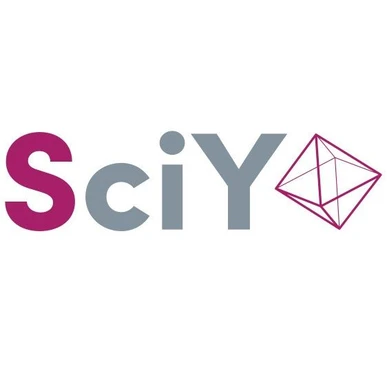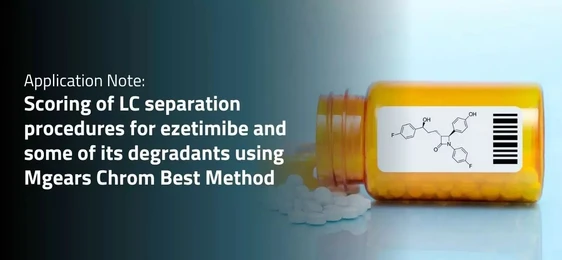
Mestrelab Mnova Gears – Chrom Best Method software
Automated solution for selection of the optimal separation method
Data processing and comparison between different chromatographic methods can quickly form a bottleneck when large amounts of data is generated, particularly when multiple different instruments are involved.
Chrom Best Method is a vendor-agnostic tool that can seamlessly screen and compare several chromatographic methods, then suggest the one that is more likely to yield a pure compound. Chrom Best Method automates LC-MS data processing, target and impurity identification, method scoring, and report generation, to provide quick, smart, and robust answers, whilst still allowing for full review and overriding of results to accommodate users’ needs.
 Mestrelab Research: Save time and money – find the best separation conditions for your compounds with Chrom Best Method!
Mestrelab Research: Save time and money – find the best separation conditions for your compounds with Chrom Best Method!
Visit MestreLab Research Mnova Gears – Chrom Best Method product page to learn more!
Chrom Best Method Benefits
- Effective, vendor-neutral analysis and comparison of your LC-MS data from different instruments in one software package.
- Seamless evaluation of several methods for many targets in a single run, which accommodates HT experimentation.
- Meaningful method scores based on your criteria, preferences, and operational requirements.
- Substantial reduction in the time spent on manual analysis and creation of reports.
- Effective result visualization and interpretation, enabling quick and confident decision making.
 Mestrelab Research: Mestrelab Mnova Gears – Chrom Best Method software
Mestrelab Research: Mestrelab Mnova Gears – Chrom Best Method software
Chrom Best Method Features
- Automated data preparation, analysis, and reporting of results
- Comprehensive method scoring that generates meaningful results
- Powerful target peak assignment options and detection of impurities
- Multiple ways to provide target information (using a structure, dataset file name, mapping file, or parameters)
- Flexible ion matching and analysis options that fit multiple-use cases
- Optimized algorithm for chiral screening
- Possibility to screen methods on different targets in a single run
- Manual review by exception of scoring and ability to override results
 Mestrelab Research: Mestrelab Mnova Gears – Chrom Best Method software.
Mestrelab Research: Mestrelab Mnova Gears – Chrom Best Method software.
Purification Workflow
More Automation
Looking for an enterprise-level solution for improving your purification and data management procedures? Check the Fraction Analysis and Quality Control bricks that also run in full automation with Mgears. You have the complete flexibility to combine and adapt these solutions to your standard procedures to reap even more benefits to your organization.
Contact us for more information.
 Mestrelab Research: Mestrelab Mnova Gears – Chrom Best Method software
Mestrelab Research: Mestrelab Mnova Gears – Chrom Best Method software
Markets
Academic, Government & Industrial
Who should be using Chrom Best Method?
Organic chemists, analysts, QC experts, and researchers using quantitative chromatographic methods for quality control, concentration/purity determination, or monitoring/optimization of reactions in one of the following markets and applications:
Pharmaceutical / Drug development industry
Food & Beverage industries
Personal care and Cosmetics
Fine chemical synthesis industries
Polymer industries
Academic research laboratories
Contract Research Organizations (CROs) offering purification services
Compound purification for subsequent use in studies or commercialization
Isolation of unknown impurities in finished products, natural products, or in the environment for structural disclosure, study, etc.
Chiral separation to remove unwanted enantiomers obtained during organic synthesis

News

Scoring of LC separation procedures for ezetimibe and its degradants using Mgears Chrom Best Method
